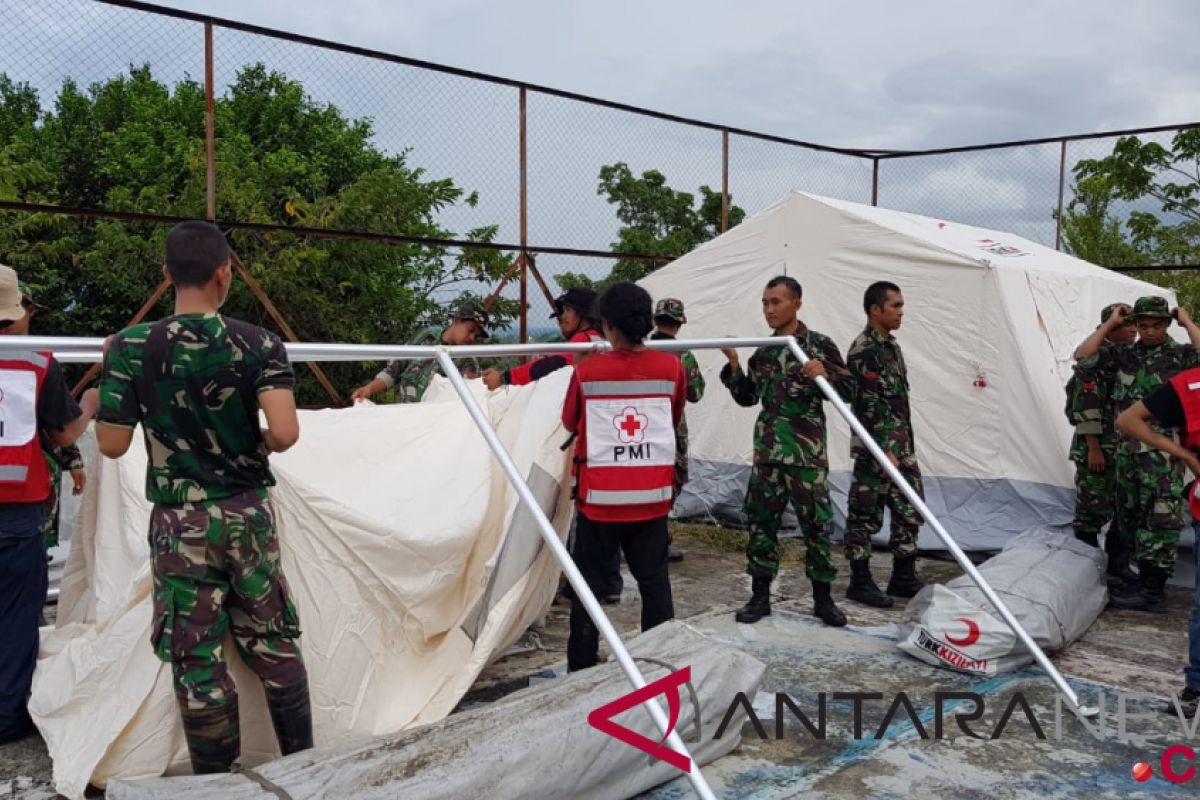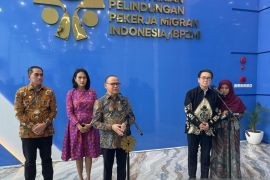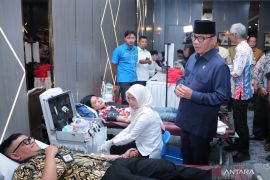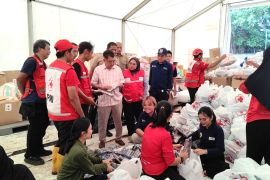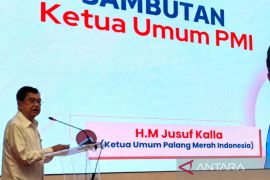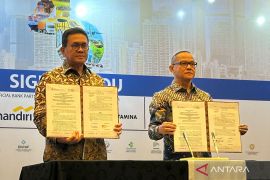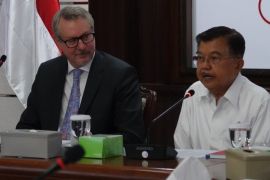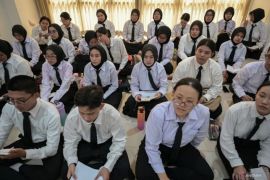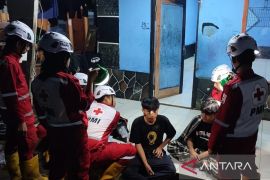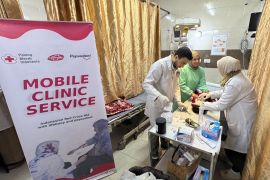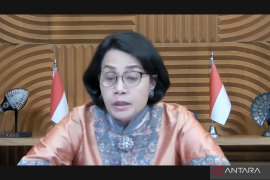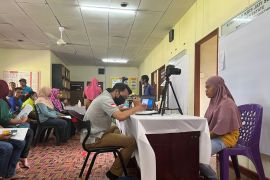One of the locations of the field clinic is in the area affected by the disaster and as the epicenter of the earthquake in Tompe Village in the west coast of Donggala District.
The Indonesian Red Cross has become the front guard in handling humanitarian problems in the country, from natural disasters to conflicts.
In the aftermath of the magnitude-7.4 earthquake and subsequent tsunami that devastated Palu and Donggala in Central Sulawesi Province on Sept 28, the Indonesian Red Cross had distributed emergency logistics.
The emergency logistics included instant food, clean water, medicines, hundreds of blankets, mats, jerrycans, sarongs, and tents from its warehouse in Makassar, South Sulawesi; and Banjarmasin, South Kalimantan; in addition to Rp100 million of emergency response fund.
Some 16,732 people were accommodated at evacuation camps in 123 locations in the city of Palu and the districts of Donggala, Sigi, and Parigi Moutong.
The Indonesian Red Cross also provided the disaster victims with a field hospital, paramedics, electricity, and communication line.
In Tompe Village in the west coast of Donggala District, a number of health facilities were damaged and no longer functioning, one of them was the Community Health Center (Puskesmas) service, which was affected and suffered severe damage.
Emergency Health Clinic Service Coordinator Iwan Ridwanudin, in his written statement received in Jakarta on Monday, remarked that in that area, PMI had established a field clinic with the aim of providing emergency basic health services to the refugees, especially to re-function Puskesmas services there.
According to Ridwanudin, this field clinic will function like a Puskesmas, where a 24-hour facility, which consists of emergency department, outpatient, and inpatient services will be included in its services.
In addition there are also services for pregnancy control, poly childbirth, control of growth and development, breastfeeding, public health and immunization, as well as in Puskesmas, in general.
The same thing was also expressed by the Head of the Central PMI Emergency Health Subdivision, Istianasari, who stated that the emergency health services of this field clinic were to re-activate the Puskesmas services that were affected by the disaster.
In its implementation, a number of medical personnel, consisting of general practitioners and specialists, assisted by nurses and midwives as well as pharmacists, will assist in the process of health services.
Previously, the Indonesian Red Cross conducted mobile clinic services to reach several isolated areas due to the earthquake and tsunami in Palu, Sigi, Donggala, and Parigi.
The services are a follow-up to maximize PMI`s efforts in the emergency response period, which is extended 14 days to Oct 26, 2018.
During the search and evacuation of the victims of the devastating earthquake and tsunami in Central Sulawesi, PMI also mobilized its network of volunteers to support search, rescue, and retrieval efforts.
Emergency response team members (ERT) were deployed to deliver relief assistance and undertake rapid needs assessments.
Hundreds of PMI volunteers and staff were sent to the ground with government agencies to conduct search and rescue activities, provide medical support, and distribute relief goods.
The most urgent needs at the time were medical care for survivors and provision of food, shelter, blankets and clean water, and also communication tools to help account for their loved ones.
Hence, PMI sent additional logistics assistance to help deal with the emergency response in Central Sulawesi after the earthquake and tsunami hit several locations in the province.
The step to send additional logistics assistance was taken in accordance with Jusuf Kalla`s directives as the chairperson of the Indonesian Red Cross.
Kalla has instructed all levels of PMI`s resources to continue supporting efforts in the handling of the affected victims and in the emergency response process.
PMI had sent logistical and operational vehicles, with a total of 70 tons simultaneously from four regional warehouses owned by PMI across Indonesia.
A total of 25 tons of aid were sent from the PMI`s regional warehouse in Serang, Banten, which comprised basic needs for refugees, such as cleaning supplies, baby equipment, platoon tents, family pram tents, striated blankets, sarongs, cooking utensils, mattresses, and personal protective equipment such as masks and medical and latex gloves.
In addition to logistical assistance, the PMI has sent several additional fleets comprising seven water tankers, ankle trucks, double trucks, and Fuso trucks in addition to other heavy equipment such as hagglund amphibious multi-field vehicles.
Social Affairs Minister Agus Gumiwang appreciated all selfless PMI volunteers who have dedicated themselves to help people in need.
According to him, the Indonesian Red Cross never differentiates anyone based on their ethnicity, religion, race, and political perspective, rather PMI applies the same humanitarian principles to all.
Reporter: Otniel Tamindael
Editor: Andi Abdussalam
Copyright © ANTARA 2018
